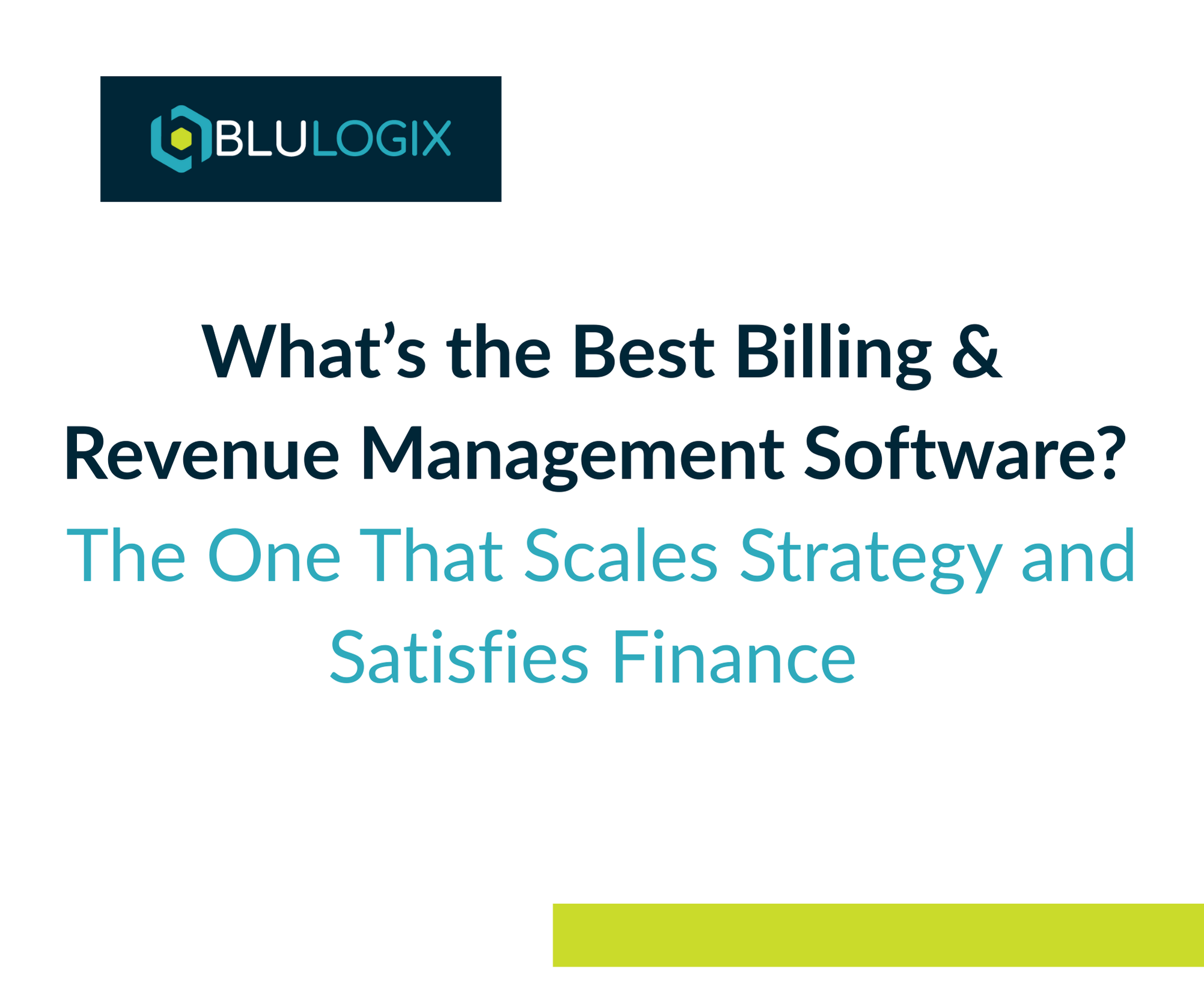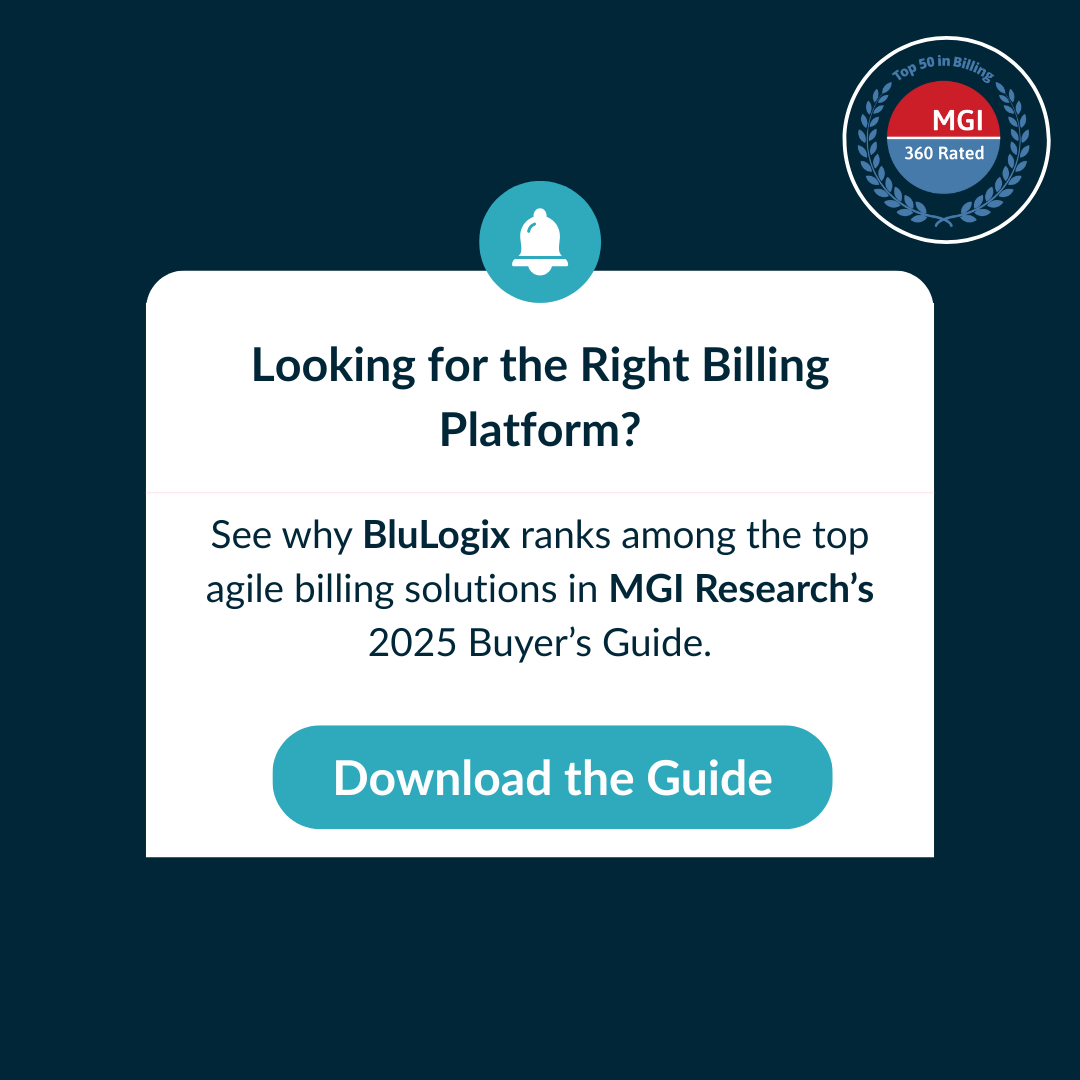Breaking Down Data Silos for Seamless Monetization
Introduction
In the modern business landscape, data is the lifeblood of any organization. For Managed Service Providers (MSPs), data plays a crucial role in every aspect of business operations, from customer relationship management to billing and provisioning. However, disconnected data sources—commonly known as data silos—can severely hamper efficient monetization and limit an organization’s growth potential.
Data silos occur when different business systems operate independently, preventing the flow of information across the organization. These silos can create significant operational inefficiencies, lead to misinformed decision-making, and ultimately slow down growth. In this blog post, we explore how data silos impact MSPs, the need for seamless integration across key business systems, and the benefits of a connected data platform for optimizing monetization.
Ready to see how BluIQ can transform your billing process and help you achieve integrated, automated, and accurate complex monetization? Schedule a demo with a BluLogix billing expert today and take the first step towards revolutionizing your revenue management.
How Data Silos Create Operational Inefficiencies
Data silos can occur for several reasons: disparate systems, a lack of integration, and different departments working in isolation. When key business systems—such as CRM, ERP, and provisioning systems—do not communicate effectively, MSPs are left with incomplete or inconsistent data, which can lead to inefficiencies across multiple areas of the business.
For example, without seamless data sharing between the CRM and billing systems, an MSP might face issues with inaccurate customer billing, delayed invoices, or misaligned service packages. Sales and customer service teams may not have access to real-time customer information, making it difficult to provide personalized support or upsell opportunities. As a result, the overall customer experience is compromised, and the business misses out on valuable opportunities for growth.
Operational inefficiencies caused by data silos also extend to resource allocation. When data is disconnected, it becomes challenging for decision-makers to gain an accurate view of operations, track key performance indicators, and allocate resources effectively. This can lead to overstaffing or understaffing, inefficient use of resources, and reduced profitability.
The Need for Seamless Data Integration Across CRM, ERP, and Provisioning Systems
To overcome the challenges posed by data silos, MSPs need seamless data integration across key business systems, including CRM, ERP, and provisioning. By connecting these systems, MSPs can ensure that data flows smoothly across the organization, providing a unified view of operations and customer interactions.
- CRM Integration
A customer relationship management (CRM) system is critical for managing customer interactions, sales processes, and support services. By integrating CRM with other business systems, MSPs can provide sales, support, and finance teams with real-time access to customer information. This leads to improved collaboration, better customer service, and more accurate billing.
- ERP Integration
Enterprise Resource Planning (ERP) systems manage the financial aspects of the business, including accounting, billing, and inventory management. Integrating ERP with other systems ensures that billing information is accurate, up-to-date, and aligned with the services delivered. Automated data flow between ERP and CRM systems reduces manual data entry and minimizes the risk of errors, ensuring that financial records are always in sync.
- Provisioning System Integration
Provisioning systems are responsible for activating, managing, and deactivating services for customers. Integrating provisioning systems with CRM and ERP systems ensures that service activation is accurately reflected in customer records, and that billing begins promptly after service activation. This improves the customer experience, reduces the risk of billing disputes, and enhances operational efficiency.
Benefits of a Connected Data Platform for Decision-Making
Integrating key business systems to create a connected data platform offers numerous benefits for MSPs. By breaking down data silos and creating a unified data environment, MSPs can make more informed business decisions, enhance customer satisfaction, and optimize their monetization strategies.
- Improved Decision-Making
A connected data platform provides MSPs with a holistic view of their operations, allowing decision-makers to gain insights from accurate and real-time data. This improved visibility helps in identifying trends, analyzing customer behavior, and understanding the performance of different service offerings. With a comprehensive view of the business, MSPs can make data-driven decisions that lead to better outcomes and increased profitability.
- Enhanced Customer Experience
When data flows seamlessly across the organization, MSPs can deliver a more personalized and responsive customer experience. Sales and support teams have access to real-time customer information, enabling them to address customer needs proactively. Customers receive accurate billing, prompt service activation, and consistent communication—all of which contribute to a positive customer experience and long-term loyalty.
- Increased Efficiency and Revenue Growth
Seamless data integration eliminates the need for manual data entry, reduces errors, and streamlines operations. By automating repetitive tasks and ensuring that all systems are in sync, MSPs can reduce administrative overhead, improve operational efficiency, and free up resources to focus on strategic initiatives that drive revenue growth.
- Optimized Monetization Strategies
With a connected data platform, MSPs can gain a deeper understanding of customer preferences, service usage, and market trends. These insights can be used to optimize pricing models, develop targeted promotions, and create new service offerings that meet customer needs. By leveraging data for smarter monetization strategies, MSPs can stay ahead of the competition and maximize their revenue potential.
Conclusion
Data silos are a significant barrier to efficient monetization for Managed Service Providers. By integrating key business systems—such as CRM, ERP, and provisioning—MSPs can break down data silos, improve operational efficiency, and make more informed decisions that drive growth. A connected data platform not only enhances the customer experience but also enables MSPs to optimize their monetization strategies and achieve sustainable success.
Ready to see how BluIQ can transform your billing process and help you achieve integrated, automated, and accurate complex monetization? Schedule a demo with a BluLogix billing expert today and take the first step towards revolutionizing your revenue management.
Learn more

What’s the Best Billing & Revenue Management Software? The One That Scales Strategy and Satisfies Finance

Features That Power Complex B2B Contracts — And How BluLogix Delivers Them



